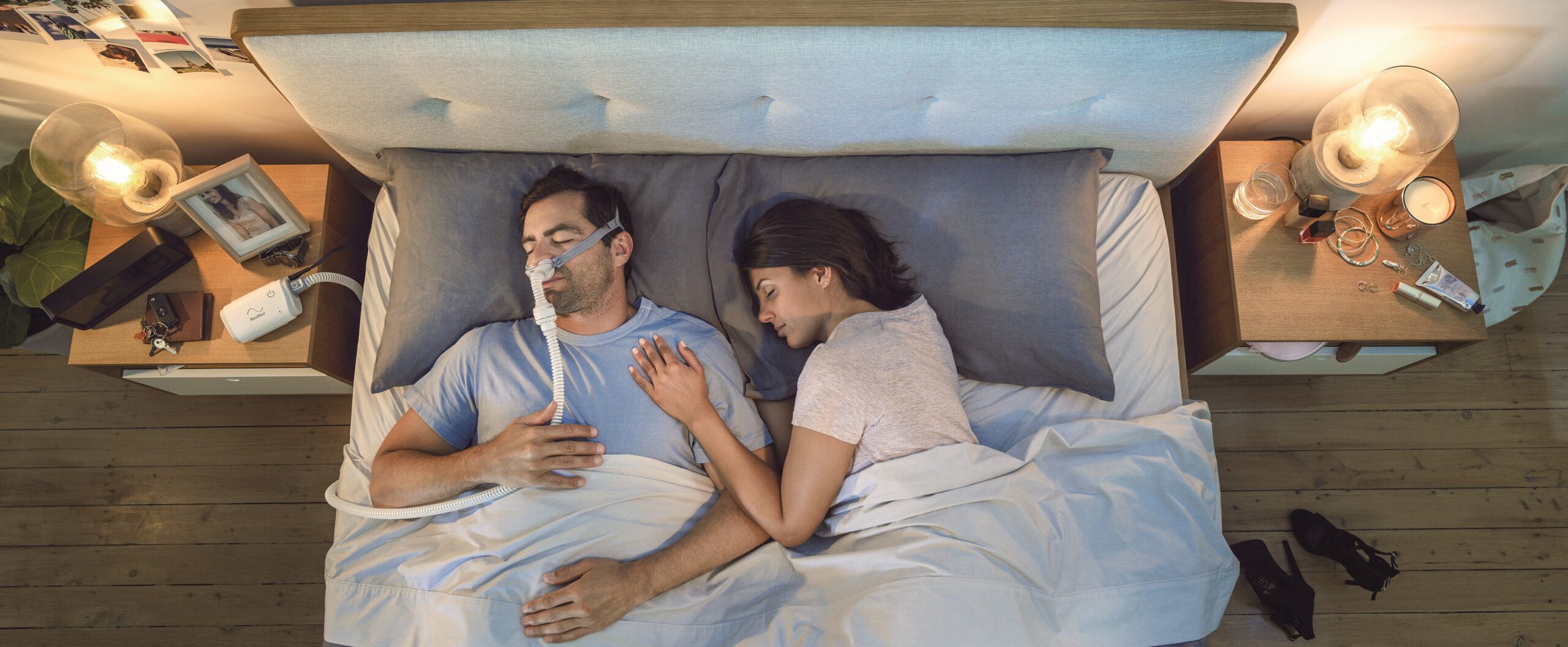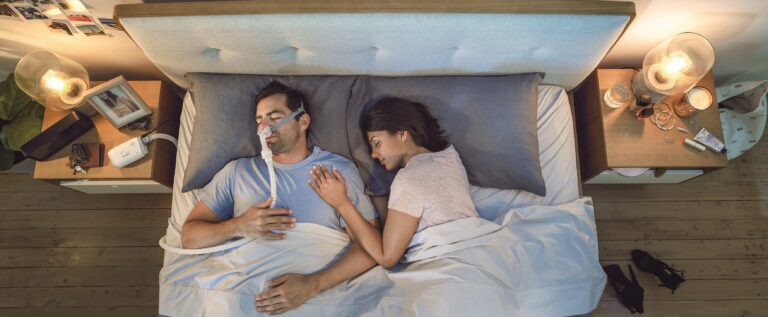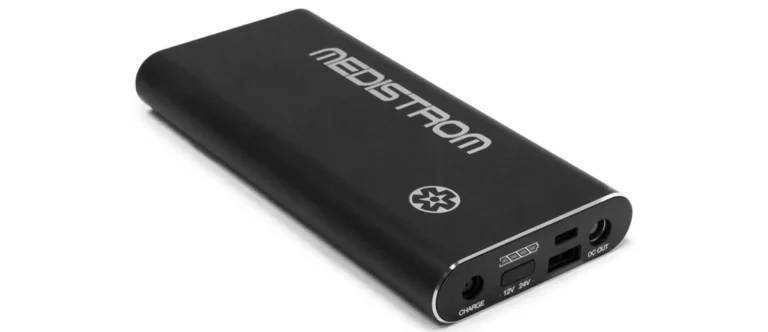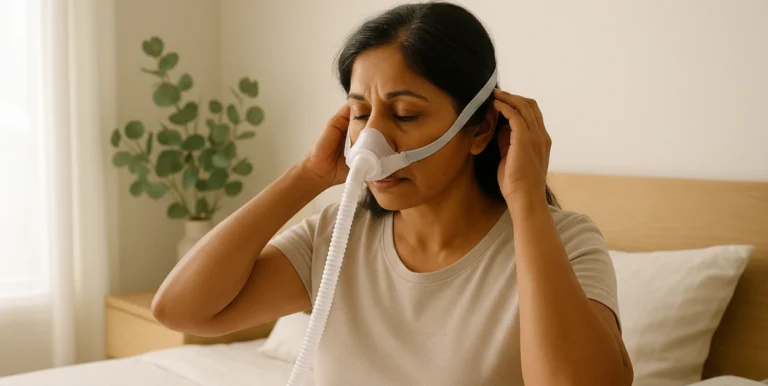Your cart is currently empty!
Prefer to just call? (07) 3472 6421
What Is Sleep Apnoea? Symptoms, Risks, and Treatment Options

Have you been told you snore, stop breathing in your sleep, or feel tired no matter how much you sleep? You might be one of the millions living with sleep apnea—a serious yet treatable sleep disorder.
What Is Sleep Apnoea?
Sleep apnea (or sleep apnoea) is a condition where your breathing repeatedly stops and starts during sleep. These pauses can last 10 seconds or more and happen dozens—or even hundreds—of times a night.
The most common type is obstructive sleep apnea (OSA), caused by a blockage in the airway. There’s also Central Sleep Apnoea (CSA), which is related to how the brain signals the muscles to breathe, which is the more rare type.
Common Symptoms of Sleep Apnoea
Many people don’t realise they have sleep apnoea until a partner notices or a sleep study reveals it. Here are the most common signs:
- Loud, frequent snoring
- Gasping or choking during sleep
- Pauses in breathing at night
- Waking up tired, even after a full night’s sleep
- Morning headaches
- Daytime sleepiness or fatigue
- Difficulty concentrating or memory issues
- Mood changes like irritability or depression
Why Sleep Apnea Is Serious?
Untreated sleep apnea is more than just a bad night’s sleep. It can lead to serious health problems, including:
- High blood pressure
- Heart disease
- Stroke
- Type 2 diabetes
- Weight gain
- Depression and anxiety
- Increased risk of accidents due to fatigue
The good news? With the right treatment, most people experience huge improvements in sleep quality, energy, and overall health.
Treatment Options for Sleep Apnea
1. CPAP Therapy
The gold-standard treatment for obstructive sleep apnea is CPAP (Continuous Positive Airway Pressure). A CPAP machine delivers a steady stream of air through a mask to keep your airway open while you sleep. The Benefits of CPAP include:
- Restful, uninterrupted sleep
- Reduced snoring
- Improved energy and mood
- Lower health risks
At Sleep Warehouse, we offer a wide range of CPAP machines, masks, and accessories to suit every sleep style and budget. Not sure what you need? Our team is here to help you choose the right setup. Contact Us – Sleep Warehouse
2. Lifestyle Changes
Some people can reduce symptoms with:
- Weight loss
- Avoiding alcohol or sedatives
- Sleeping on their side
- Quitting smoking
3. Oral Appliances/ Mouthguards
Custom-made mouthguards can help reposition the jaw to keep the airway open. These are typically used for mild to moderate cases.
4. Surgery
In some cases, surgery may be recommended to remove excess tissue or correct structural issues in the airway.
When to See a Doctor
If you or someone close to you notices signs of sleep apnoea—like snoring, gasping, or excessive tiredness—speak to your GP. A simple sleep study can confirm the diagnosis and guide the best treatment.
Sleep apnoea is more common than many people realise—and it’s very treatable. CPAP therapy is one of the most effective ways to manage symptoms and get back to living (and sleeping) well.
ABOUT AUTHOR
Recent blog posts
2 responses
-
My brother suggested I would possibly like this
web site. He was entirely right. This put up actually
made my day. You cann’t consider simply how a lot time
I had spent for this info! Thanks!
-
I’m not sure where you are getting your info, but great topic.
I needs to spend some time learning much
more or understanding more. Thanks for fantastic info I was looking for this info for my mission.



Leave a Reply
You must be logged in to post a comment.